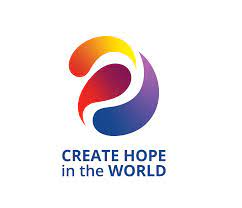Mark began by telling us that the Paso Robles High School Field Studies Collaborative is a pathway for students interested in supplementing their PRHS standards based education with field training and hands-on research. Students earn academic credit while conducting real-world scientific research outside of the school day.
VISION The Vision of the Field Studies Collaborative is to create citizens with a deeper understanding of the connections between human well-being, service to the community, and stewardship of the natural world.
MISSION STATEMENT The Field Studies Collaborative at Paso Robles High School creates transformative educational experiences through hands-on, field-based learning and research. In partnership with private and public entities, these extra-curricular, for-credit courses provide a pathway for students to improve leadership skills and prepare for college and career with rigorous, learn-by-doing research opportunities. CORE VALUES Perseverance, Work Ethic, Leadership, Creativity, Problem-solving, Collaborative Skills, Accountability
Benefits for Students
● Direct Hands on Learning Experience
● Growth in Leadership, Problem Solving, Group Work, Perseverance and Responsibility ● Students Learn Scientific Field Techniques
● Access to Experience Not Available in the Traditional Classroom
● Collaboration with Universities, Government Agencies and Non-Profits
● Opportunity to See Research Published
● Travel, Often to Remote Research Sites
● Explore a Field of Work Usually Unavailable to High School Students
● Wonderful Chance to Make New Friends
● Receive Academic Credit.
FSC Courses are Free to Students
A number of Mark’s students who have participated in various field studies spoke of their experiences. Students participated in a Marine Intertidal Monitoring Program through NOAA. On a 2-day trip to Mt. Wilson, another student told us about doing research in binary stars while another student recounted her experience on a 5-day backpacking trip to Joshua Tree studying the desert for affects of climate change. Twice a year, students go to Santa Cruz Island for 4-5 days to monitor the plant community. During their stay, they also learn to make stone tools like the Chumash used.

